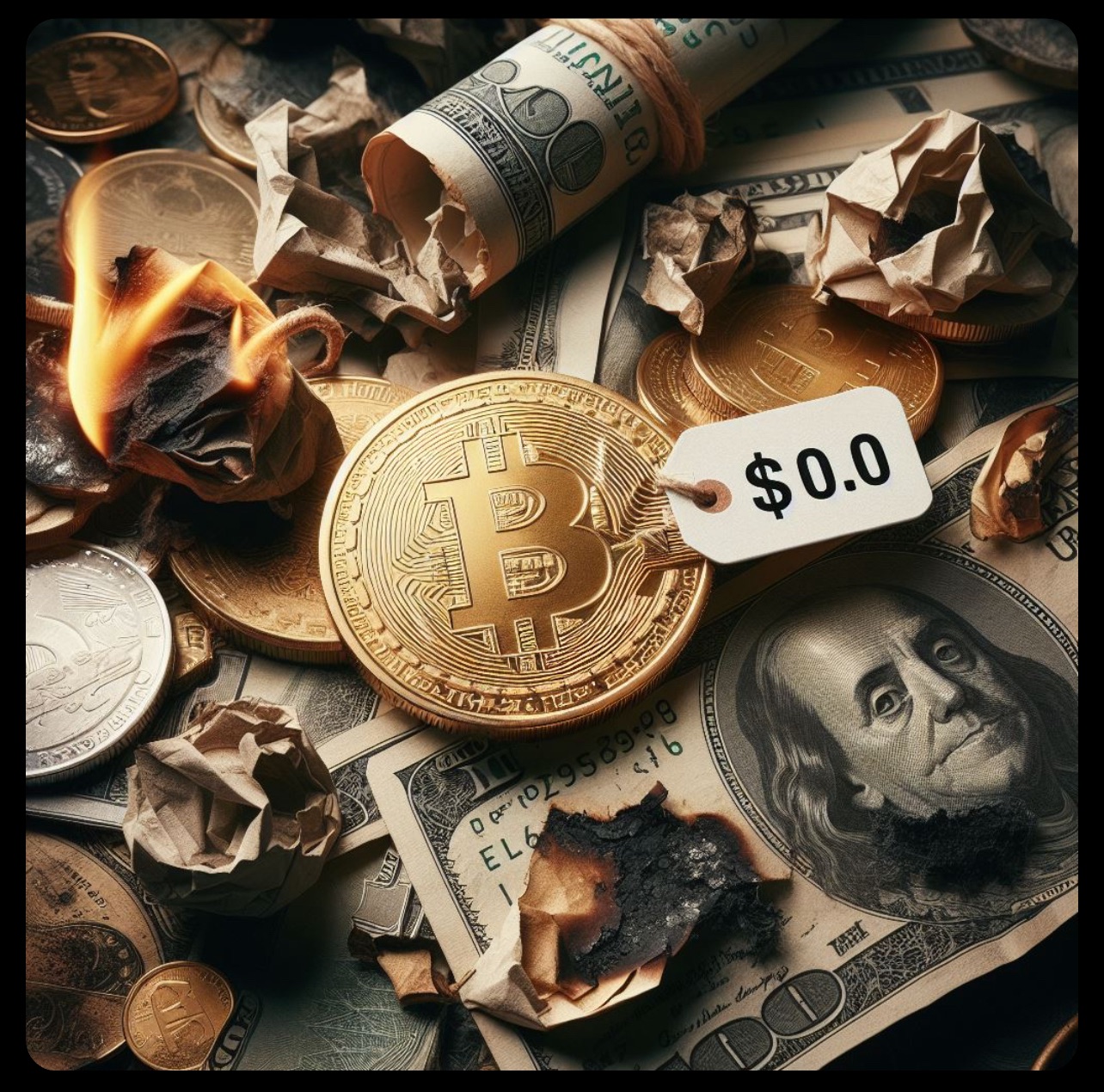In recent years, cryptocurrencies have captured the imagination of investors, tech enthusiasts, and the general public. Bitcoin, Ethereum, and a plethora of altcoins have surged in popularity, leading to a frenzy of speculation and investment. However, beneath the hype lies a fundamental question: Does crypto truly possess any intrinsic value?
The Naked Emperor’s New Clothes
The European Central Bank (ECB) has been unyielding in its stance: Bitcoin has zero real value1. Despite the recent approval of Bitcoin exchange-traded funds (ETFs) in the United States, the ECB remains skeptical. Let’s dissect their argument:
- Environmental Impact: Bitcoin mining consumes an enormous amount of energy. The carbon footprint associated with maintaining the blockchain network is staggering. While some argue that this energy expenditure secures the network, it also exacerbates climate change. The environmental cost is real, and it’s a price we pay for a digital asset that lacks tangible substance.
- Utility and Functionality: Critics often point out that cryptocurrencies lack practical utility. Yes, they enable peer-to-peer transactions, but so do traditional payment systems. The promise of decentralized finance (DeFi) and smart contracts remains largely unrealized. Many coins exist purely as speculative instruments, with no real-world applications.
- Volatility and Speculation: The wild price swings in the crypto market are notorious. While volatility can create trading opportunities, it also undermines the concept of a stable store of value. Imagine a currency that fluctuates wildly within hours—hardly a reliable medium of exchange or unit of account.
- Lack of Backing: Unlike fiat currencies, which are backed by governments and central banks, cryptocurrencies lack any such backing. Their value derives solely from market sentiment and demand. When sentiment turns sour, the value can plummet rapidly.
The Scarcity Argument
Skeptics argue that scarcity alone doesn’t confer value. Yes, Bitcoin is scarce—only 21 million will ever exist. But scarcity doesn’t automatically translate into usefulness or worth. Consider tulip bulbs during the Dutch Tulip Mania in the 17th century. They were scarce, yet their value skyrocketed irrationally before crashing spectacularly.
The Counterargument
Not everyone agrees with the ECB’s assessment. Some proponents argue that Bitcoin’s scarcity, combined with its decentralized nature, makes it a superior store of value. They compare it to gold—an asset with intrinsic scarcity and millennia of acceptance. Additionally, Bitcoin’s censorship resistance and borderless nature appeal to those seeking financial sovereignty.
Conclusion
The debate rages on, but one thing is clear: Cryptocurrencies are not immune to criticism. Their value remains speculative, and their impact on the environment and society warrants scrutiny. As investors, we must tread carefully, recognizing that the emperor’s new clothes may glitter, but they lack substance.
In the end, whether crypto truly possesses value or not depends on our collective belief—a belief that can shift as swiftly as the crypto market itself.
1: Bitcoin’s fair value is zero, and the latest boom will spark ‘massive’ collateral damage, ECB says





